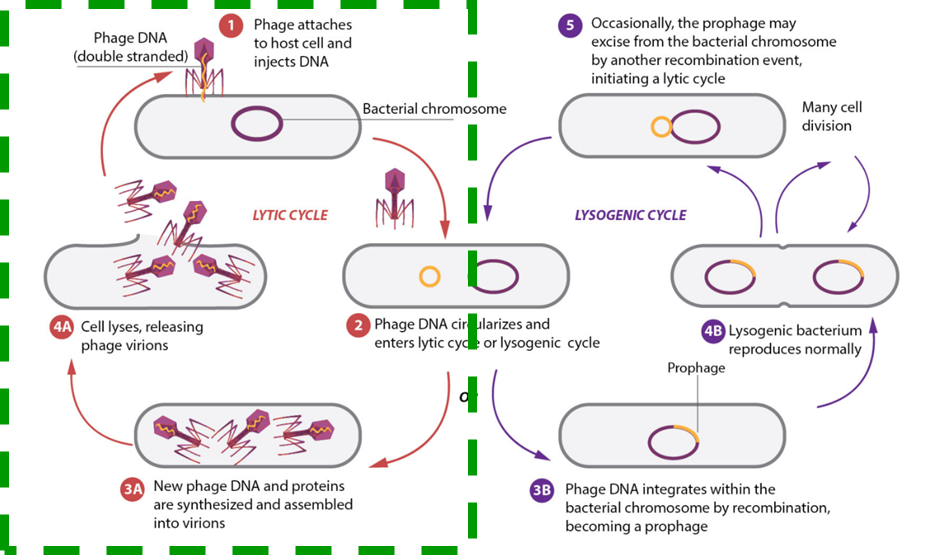FAQ
Bacteriophages or Phages are natural occurring organisms (bacterial viruses) which destroy their selected bacteria.
They are the most abundant organisms on Earth. Their count is estimated approximately 1031. They are omnipresent in nature – they are equally found in soil and water. In just 1 ml of water there are around 104 to and 108 phages.
They are also present in food (e.g. meat, milk, vegetables or cheese) as well as in humans and animals. They are isolated, for example, from the human oral cavity, hands, gut, from saliva or eyelids).
Phages are an important part of the microbiome.
Phages are completely safe.
They do not interact with any other cells or organisms except their targeted bacteria.
Without the presence of their bacterial host, they become inactive within approximately 48 hours, depending on the environment.
They are natural organisms with all-natural components made up of only genetic material (DNA or RNA) and protein.
They do not leave chemical residues in the environment.
Phages have also been assessed internationally, i.e.:
USA – GRAS (Generally Recognized as Safe) as a preservative for food for humans and clinical trials in phases I and II for subcutaneous use in humans.
EFSA (European Food Safety Authority) – positive scientific opinion on the safety of use.
 Lytic (virulent) phages causes lysis (destruction) of the bacterial cell.
Lytic (virulent) phages causes lysis (destruction) of the bacterial cell.
Not all phages are lytic. Some phages are lysogenic – temperate or dormant – embedded in the bacterial cell which thrive on the bacteria without destroying it.
Proteon has the most advanced artificial intelligence-supported technology to determine whether phages are lytic or not.
When dealing with phages it is important that only lytic phages are used in animal health.
Proteon’s phages are proven to be Lytic (effective against targeted bacteria).
No. Phages cannot undergo reversion.
Reversion affect organisms that have been artificially modified i.e. pathogenic bacteria or virus has been made non-infectious, but then it returns to its pathogenic form.
Proteon bacteriophages are natural and have not been artificially modified, and thereby they cannot undergo reversion.
They are pathogenic to their targeted bacteria and cannot affect other organisms such as human or animal cells.
In nature, there is a balance between bacteria and the phages that target them. Attempting to develop resistance to phages as well as overcoming these attempts by the phages, are elements of that natural process.
Proteon bacteriophage products are specifically designed to limit any risk of resistance, without changing the natural qualities of phages.
Proteon selected only phages which show high capability in “outsmarting” the bacteria.
Moreover, in the process of trying to develop defence mechanisms against the phages, bacteria lose some of their virulence (the power to infect) making them less infectious.
The animal gut is not only responsible for digestion, but it also plays an important role in regulating immunological responses. Maintaining appropriate diversity and balance of the gut microbiota is vital to its proper functioning. Bacteriophages act only against their targeted bacteria not exerting any negative impact on the remaining population of bacteria living in the intestines, including the “good bacteria”.
Based on that, phage products may contribute to the maintenance of the natural intestinal microbiota balance and reduce the risk of disturbances in the gastrointestinal tract integrity.
This approach saves farmers’ time and money, supports animal welfare, and contributes to better animal farming performance.
